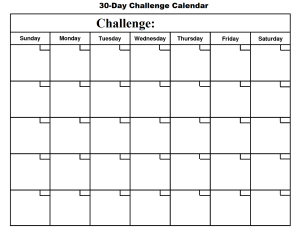“We are what we repeatedly do. Excellence, then, is not an act, but a habit.” – Aristotle
One of the greatest ways to fill up your days is by giving yourself some powerful routines that will add some major benefit to your life. Habits like reading, working out, eating healthy, waking up earlier, working on a project at a certain time and so-forth.
But why do so many people find it so difficult when it comes to changing their habits?
To many people aren’t willing to make that short-term sacrifice which will yield a long-term benefit. Human tendency is to focus on instant gratification and immediate rewards. If we’re able to get away from this and actually put some work/time into something more meaningful we can often get a much bigger reward out of that in the long-run.
The most important key to building solid habits is consistency.
So how do we go about changing habits (and actually sticking to them?)
——————————————————————–
What Habits Do You Want? 
First up is actually choosing what new habits you want to implement in your life
What kind of habits can add great values to your life at the moment? What is the main thing you need to work on in order to improve your life a little bit more?
- Do twenty push-ups each morning?
- Drink 2 liters of water each day?
- Eat a salad each day?
It’s best to start at a low level where you don’t feel any resistance. In the beginning the main thing you want to focus on is just establishing that routine. Focus on the process of doing the habit and not the end result.
For example; you want to get more physically active. And you want to do 40 minute walks everyday. A great start is to do a 5-minute walk each evening after work. You’ll probably think; “I can do that!”.
Over time you just add more time , like five extra minutes every week and soon you’ll be doing those 40 minute walks (or even runs) which will make all the difference in the end.
If you started with 40 minute walks you’re likely not going to maintain such a dramatic change. Starting with lower resistances will lead to the necessary consistency to actually achieve your goal.
Why Do You Want This Habit?

“Supersaiyan-Mode Activated”
If you want to do something consistently you’d better have a damn good reason for it! Motivation is key in achieving anything.
Tony Robbins describes motivation is determined by two factors; Our desire to attain pleasure and the need to avoid pain. So there’s really two things you can do for this;
- Link massive pleasure towards doing your habit and you’ll be pulled towards it! Write down all the benefits you get for achieving this habit.
For example: When I work out regularly I’ll get a great body - Link massive pain to not doing this habit and you’ll pushed away from your current state. Write down all the pain your current habit has caused you (and will cause in the future)
For example: My bad physical condition has made it difficult for me to enjoy life (playing with my children, taking the stairs, going outside on a warm day,…)
So I encourage you to write down the positive outcomes this habit has for your life and the pains you’ll get from not doing them!
Without a motive, habits are worthless.
How Are You Going To Stick To Them?
How are you going to keep yourself accountable. We got a clearly defined goal and a great motive but is that really enough? How are we going to push trough the moments where “the going gets tough?”
You’re going to need to keep yourself accountable! You can do this by downloading the Thirty Day Challenge Calendar from my toolbox and print it out.
Hang it up somewhere visible (kitchen, fridge,…) to remind you that you need to do that certain task.
You can even link some consequences to not taking action. For example; Ask a friend or family member to keep yourself accountable and if you don’t complete what you’ve set out to do, you connect a consequence to that (giving that friend 15$ for example, or even 500$.) The more painful the consequence the more motivated you’ll be. (If you can’t find any good consequences, ask your friends ;) They’ll surely come up with something)
But also link rewards to completing these daily routines! Changing h****abits pays of very slowly (most) and therefore you won’t really get any immediate satisfaction from them.
Create rewards whenever you’ve completed a daily routine. These rewards will strengthen the desired neural pathways.
Reward good behavior instantly with positive self-talk, a relaxing movie, eating out, taking a bath, buy yourself a present, anything really.
Essence
Allright what should you take away from this post and implement right now?
- Print out the 30 Day Challenge Calendar
- Write down one habit you want to imbed into your life for the next thirty days
- Write down your motivation on the back and hang it somewhere where you can see it everyday (fridge, desk, kitchen, …)
- Link your actions to consequences and rewards!
- Start small & build them up gradually
- When you skip a day – don’t freak out but simply try again the next day
- Consistency is most important.
If you find yourself struggling with consistency. Either lower the resistance or increase the consequences.
Don’t get frustrated on the results you’re not getting by constantly comparing your current state to your end goal. This immediately places you in a lower position which will cause you to lose the drive you need for changing habits
Focus on where you’ve started to really feel driven to work on those habits. For example; I try to work out 4-5 days a week and have kept pictures of myself from when I first started until now. When I’m feeling demotivated or feel like I’m not making any progress, I just grab those pictures and really see how much progress I’ve made.
What Habit Will You Implement?
————————————-
Guess that’s all for now, if you’re having more questions about this post feel free to leave a comment in the comment section below.
Take care,
Simon
